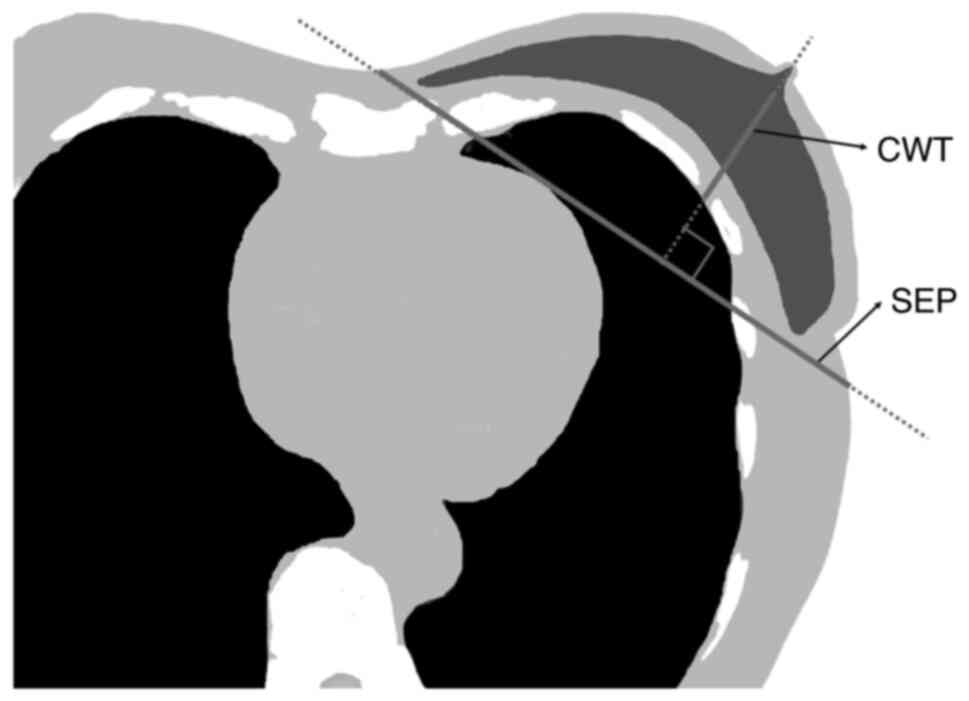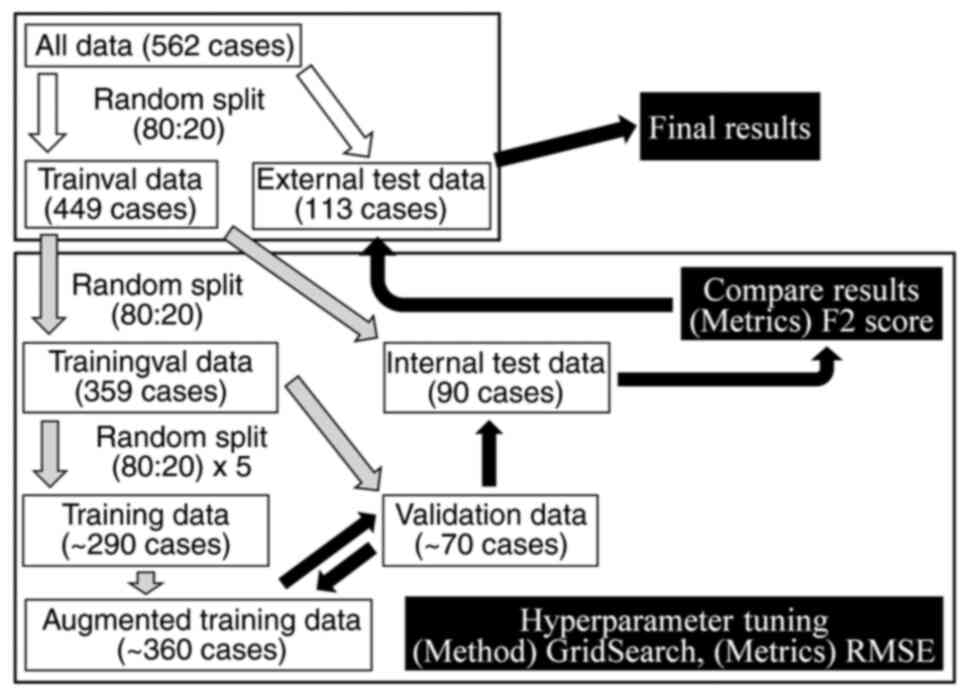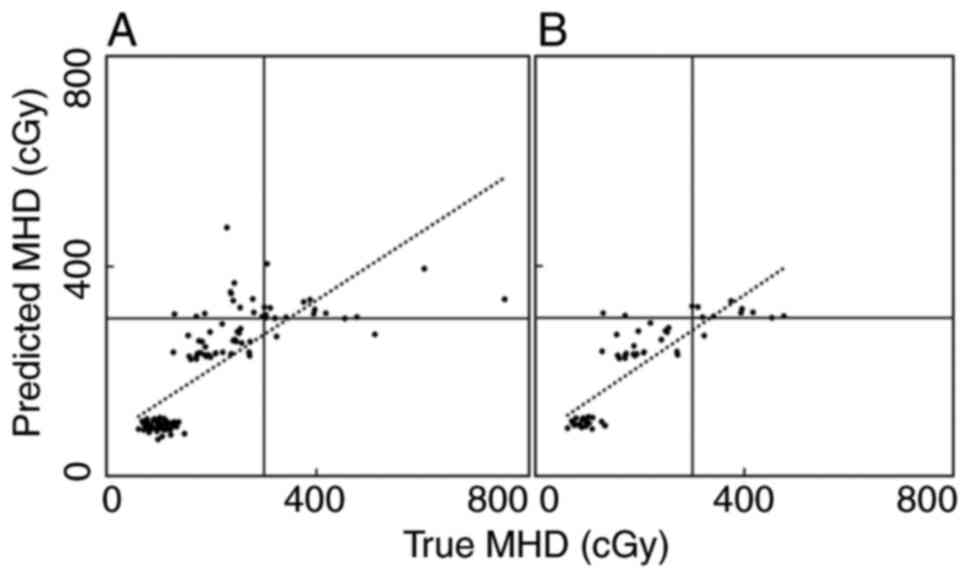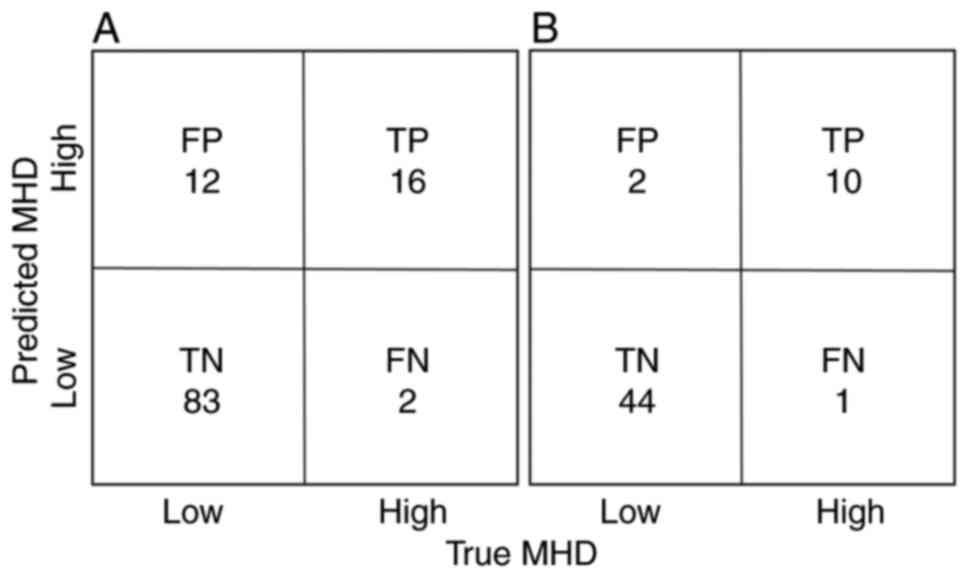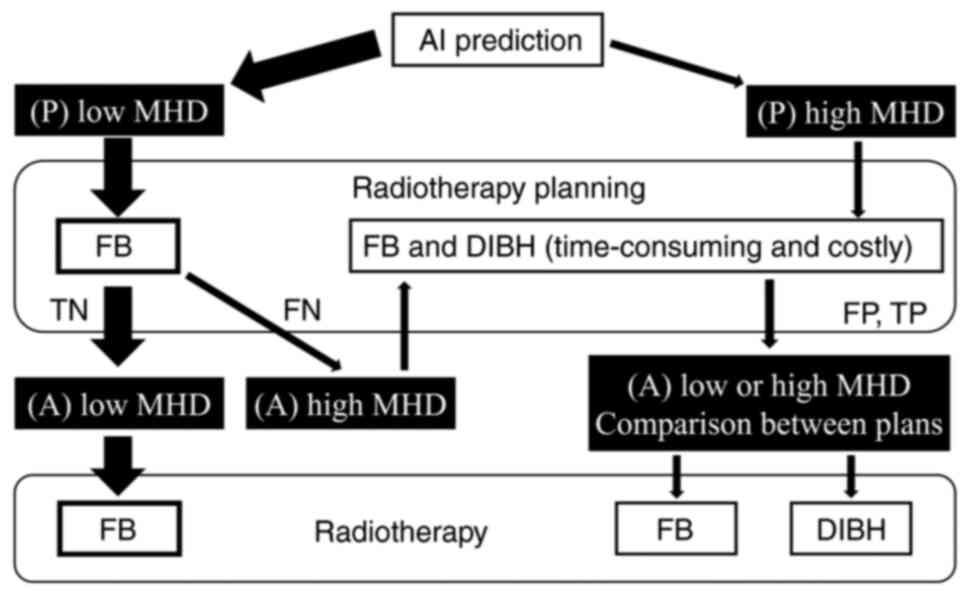|
1
|
Clarke M, Collins R, Darby S, Davies C,
Elphinstone P, Evans V, Godwin J, Gray R, Hicks C, James S, et al:
Effects of radiotherapy and of differences in the extent of surgery
for early breast cancer on local recurrence and 15-year survival:
An overview of the randomised trials. Lancet. 366:2087–2106.
2005.PubMed/NCBI View Article : Google Scholar
|
|
2
|
Darby S, McGale P, Correa C, Taylor C,
Arriagada R, Clarke M, Cutter D, Davies C, Ewertz M, Godwin J, et
al: Effect of radiotherapy after breast-conserving surgery on
10-year recurrence and 15-year breast cancer death: Meta-analysis
of individual patient data for 10,801 women in 17 randomised
trials. Lancet. 378:1707–1716. 2011.PubMed/NCBI View Article : Google Scholar
|
|
3
|
Beaton L, Bergman A, Nichol A, Aparicio M,
Wong G, Gondara L, Speers C, Weir L, Davis M and Tyldesley S:
Cardiac death after breast radiotherapy and the QUANTEC cardiac
guidelines. Clin Transl Radiat Oncol. 19:39–45. 2019.PubMed/NCBI View Article : Google Scholar
|
|
4
|
Lu Y, Yang D, Zhang X, Teng Y, Yuan W,
Zhang Y, He R, Tang F, Pang J, Han B, et al: Comparison of deep
inspiration breath hold versus free breathing in radiotherapy for
left sided breast cancer. Front Oncol. 12(845037)2022.PubMed/NCBI View Article : Google Scholar
|
|
5
|
Falco M, Masojć B, Macała A, Łukowiak M,
Woźniak P and Malicki J: Deep inspiration breath hold reduces the
mean heart dose in left breast cancer radiotherapy. Radiol Oncol.
55:212–220. 2021.PubMed/NCBI View Article : Google Scholar
|
|
6
|
Yamauchi R, Mizuno N, Itazawa T, Saitoh H
and Kawamori J: Dosimetric evaluation of deep inspiration breath
hold for left-sided breast cancer: Analysis of patient-specific
parameters related to heart dose reduction. J Radiat Res.
61:447–456. 2020.PubMed/NCBI View Article : Google Scholar
|
|
7
|
Stowe HB, Andruska ND, Reynoso F, Thomas M
and Bergom C: Heart sparing radiotherapy techniques in breast
cancer: A focus on deep inspiration breath hold. Breast
Cancer-Targets Ther. 14:175–186. 2022.PubMed/NCBI View Article : Google Scholar
|
|
8
|
Darapu A, Balakrishnan R, Sebastian P,
Hussain MR, Ravindran P and John S: Is the deep inspiration
breath-hold technique superior to the free breathing technique in
cardiac and lung sparing while treating both left-sided
post-mastectomy chest wall and supraclavicular regions? Case Rep
Oncol. 10:37–51. 2017.PubMed/NCBI View Article : Google Scholar
|
|
9
|
Teshima T, Owen JB, Hanks GE, Sato S,
Tsunemoto H and Inoue T: A comparison of the structure of radiation
oncology in the United States and Japan. Int J Radiat Oncol Biol
Phys. 34:235–242. 1996.PubMed/NCBI View Article : Google Scholar
|
|
10
|
Nakamura K, Konishi K, Komatsu T, Sasaki T
and Shikama N: Patterns of radiotherapy infrastructure in Japan and
in other countries with well-developed radiotherapy
infrastructures, Jpn J Clin. Oncol. 48:476–479. 2018.PubMed/NCBI View Article : Google Scholar
|
|
11
|
Morganti AG, Cilla S, de Gaetano A,
Panunzi S, Digesù C, Macchia G, Massaccesi M, Deodato F, Ferrandina
G, Cellini N, et al: Forward planned intensity modulated
radiotherapy (IMRT) for whole breast postoperative radiotherapy. Is
it useful? When? J Appl Clin Med Phys. 12(3451)2011.PubMed/NCBI View Article : Google Scholar
|
|
12
|
Ishizaka H, Kuroda M, Tekiki N, Khasawneh
A, Barham M, Hamada K, Konishi K, Sugimoto K, Katsui K, Sugiyama S,
et al: Investigation into the effect of breast volume on
irradiation dose distribution in Asian women with breast cancer.
Acta Med Okayama. 75:307–314. 2021.PubMed/NCBI View Article : Google Scholar
|
|
13
|
Kim S and Kim M and Kim M: The affecting
factors of breast anthropometry in Korean women. Breastfeed Med.
9:73–78. 2014.PubMed/NCBI View Article : Google Scholar
|
|
14
|
Li X, Zhou C, Wu Y and Chen X: .
Relationship between formulaic breast volume and risk of breast
cancer based on linear measurements. BMC Cancer.
20(989)2020.PubMed/NCBI View Article : Google Scholar
|
|
15
|
Tortorelli G, Di Murro L, Barbarino R,
Cicchetti S, di Cristino D, Falco MD, Fedele D, Ingrosso G,
Janniello D, Morelli P, et al: Standard or hypofractionated
radiotherapy in the postoperative treatment of breast cancer: A
retrospective analysis of acute skin toxicity and dose
inhomogeneities. BMC Cancer. 13(230)2013.PubMed/NCBI View Article : Google Scholar
|
|
16
|
Kim T, Reardon K, Trifiletti DM, Geesey C,
Sukovich K, Crandley E, Read PW and Wijesooriya K: How dose sparing
of cardiac structures correlates with in-field heart volume and
sternal displacement. J Appl Clin Med Phys. 17:60–68.
2016.PubMed/NCBI View Article : Google Scholar
|
|
17
|
Siddique S and Chow JCL: Artificial
intelligence in radiotherapy. Rep Pract Oncol Radiother.
25:656–666. 2020.PubMed/NCBI View Article : Google Scholar
|
|
18
|
Kang J, Schwartz R, Flickinger J and
Beriwal S: Machine learning approaches for predicting radiotherapy
outcomes: A clinician's perspective. Int J Radiat Oncol Biol Phys.
93:1127–1135. 2015.PubMed/NCBI View Article : Google Scholar
|
|
19
|
Luo Y, Chen S and Valdes G: . Machine
learning for radiation outcome modeling and prediction. Med Phys.
47:e178–e184. 2020.PubMed/NCBI View
Article : Google Scholar
|
|
20
|
Brodin NP, Schulte L, Velten C, Martin W,
Shen S, Shen J, Basavatia A, Ohri N, Garg MK, Carpenter C and Tomé
WA: Organ-at-risk dose prediction using a machine learning
algorithm: Clinical validation and treatment planning benefit for
lung SBRT. J Appl Clin Med Phys. 23(e13609)2022.PubMed/NCBI View Article : Google Scholar
|
|
21
|
Koide Y, Aoyama T, Shimizu H, Kitagawa T,
Miyauchi R, Tachibana H and Kodaira T: . Development of deep
learning chest X-ray model for cardiac dose prediction in
left-sided breast cancer radiotherapy. Sci Rep.
12(13706)2022.PubMed/NCBI View Article : Google Scholar
|
|
22
|
Ahn SH, Kim E, Kim C, Cheon W, Kim M, Lee
SB, Lim YK, Kim H, Shin D, Kim DY, et al: Deep learning method for
prediction of patient-specific dose distribution in breast cancer.
Radiat Oncol. 16(154)2021.PubMed/NCBI View Article : Google Scholar
|
|
23
|
Koide Y, Shimizu H, Wakabayashi K,
Kitagawa T, Aoyama T, Miyauchi R, Tachibana H and Kodaira T:
Synthetic breath-hold CT generation from free-breathing CT: A novel
deep learning approach to predict cardiac dose reduction in
deep-inspiration breath-hold radiotherapy. J Radiat Res.
62:1065–1075. 2021.PubMed/NCBI View Article : Google Scholar
|
|
24
|
Tekiki N, Kuroda M, Ishizaka H, Khasawneh
A, Barham M, Hamada K, Konishi K, Sugimoto K, Katsui K, Sugiyama S,
et al: New field-in-field with two reference points method for
whole breast radiotherapy: Dosimetric analysis and
radiation-induced skin toxicities assessment. Mol Clin Oncol.
15(193)2021.PubMed/NCBI View Article : Google Scholar
|
|
25
|
International Classification of Diseases
for Oncology. Available from: https://apps.who.int/iris/bitstream/handle/10665/96612/9789241548496_eng.pdf.
|
|
26
|
Chen T and Guestrin C: XGBoost: A Scalable
Tree Boosting System. In proceedings of the 22nd ACM SIGKDD
international conference on knowledge discovery and data mining.
pp785-794, 2016.
|
|
27
|
Joseph VR: Optimal ratio for data
splitting. Stat Anal Data Min. 15:531–538. 2022.
|
|
28
|
Branco P, Torgo L and Ribeiro RP: SMOGN: A
pre-processing approach for imbalanced regression. Proc Mach Learn
Res. 74:36–50. 2017.
|















